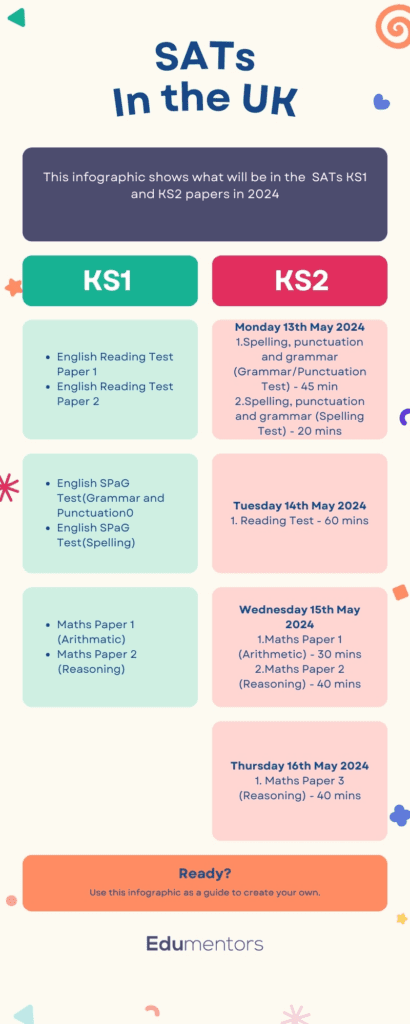Standard Assessment Tests (SATs) are crucial elements of the primary education system in the UK, designed to assess the academic progress of students in Key Stage 1 (KS1) and Key Stage 2 (KS2). Conducted nationally, these tests evaluate knowledge and skills in core subjects such as Maths, English (including Spelling, Punctuation, and Grammar – SPaG), and Science, serving as a benchmark against the national standards. While SATs scores are not predictive of future GCSE results or a measure of a child’s IQ, they are instrumental in providing a snapshot of a student’s academic abilities and are used to tailor subsequent teaching methods and resources.
What Exactly Are SATs?
SATs are structured formal assessments that aim to measure educational achievement in children at two key points in their primary education: at the end of Key Stage 1 (Year 2) and Key Stage 2 (Year 6). These tests are crucial for educators and policymakers as they provide valuable data that helps in evaluating schools and shaping educational policy.
KS1 SATs
Though now optional and less formal, KS1 SATs serve as a preliminary gauge of educational development in younger children, focusing on:
- Reading: Assessments determine comprehension abilities, testing how well students understand and interpret information.
- Maths: Focuses on basic numeracy skills, including addition, subtraction, multiplication, and problem-solving.
- Writing and Science: These are teacher-assessed and are not part of the formal SATs but provide essential insights into a child’s development in expressive and experimental aspects of the curriculum.
KS2 SATs
KS2 SATs are more rigorous and are marked externally. They cover:
- English Reading: Students are tested on their ability to comprehend, deduce, and interpret information from a variety of texts.
- English Grammar, Punctuation, and Spelling (SPaG): This includes two papers; one focusing on grammar and punctuation and the other on spelling.
- Maths: Consists of three papers covering arithmetic and mathematical reasoning, testing more complex problem-solving skills.
- Writing and Science: Like KS1, these are teacher-assessed. Writing assessment evaluates creativity, coherence, grammar, and punctuation in composition. Science focuses on knowledge and application of scientific concepts.
What Will be in the KS1 and KS2 SATs Papers in 2024?

Key Dates for the 2024 SATs
Organisation and Scheduling
- KS1 SATs: May be administered throughout May 2024 at the discretion of individual schools.
- KS2 SATs: Have fixed dates to ensure uniformity across the country. The schedule for KS2 SATs is usually confirmed a year in advance to allow adequate preparation time. The key dates for 2024 are:
- 13th May: Grammar, Punctuation and Spelling tests
- 14th May: English Reading test
- 15th and 16th May: Maths tests
SATs Results
How Results Are Processed and Reported
- KS1: Teacher-assessed and typically reported to parents as part of the end-of-year evaluations.
- KS2: Externally marked with results sent to schools in July. They are crucial as they influence secondary school placements.
Understanding Scores
- Raw Score: The total number of marks a student scores in each test.
- Scaled Score: Adjusts the raw score to account for slight variations in difficulty between different test versions. The national standard is set at 100, with scores above 100 indicating above-average ability and scores below 100 indicating below-average performance.
The Importance of SATs
SATs are not just assessments but are strategic tools used by the government to assess the effectiveness of schools and the education system. They help identify strengths and weaknesses in student learning, guiding the allocation of resources and support. They also provide parents and educators with crucial data on a child’s academic progress, informing decisions about additional support or advanced opportunities.
Conclusion
As we approach the 2024 SATs, understanding their structure, purpose, and impact is vital. These tests are more than academic benchmarks; they are indicators of educational health and student achievement. For students, parents, and teachers, a clear understanding of SATs is essential for preparation, performance, and ultimate success in these assessments. By effectively utilising this information, all stakeholders can work together to enhance educational outcomes and support student growth through primary education and beyond.








